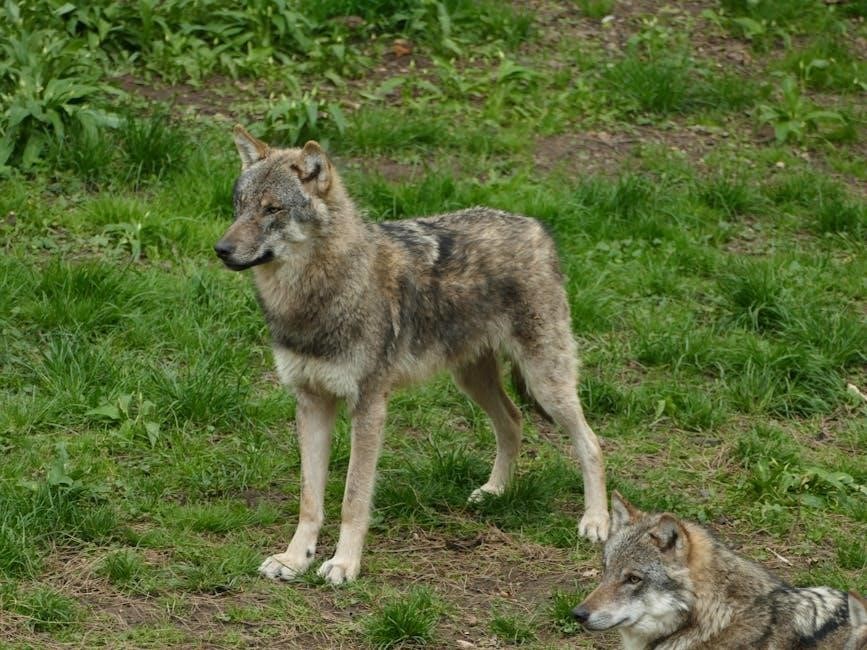The Wolves, a riveting play by Sarah DeLappe, explores the lives of nine teenage girls on an indoor soccer team, delving into their dynamics, struggles, and camaraderie.
Overview of the Play
The Wolves, written by Sarah DeLappe, is a captivating play that follows nine teenage girls on an indoor soccer team as they navigate their relationships, personal struggles, and team dynamics. Set during their pre-game warm-ups, the play captures the raw energy, humor, and vulnerability of adolescence through their banter and interactions. The characters, identified by their jersey numbers, reveal their distinct personalities and complexities, creating a nuanced exploration of female adolescence. The play has received widespread acclaim for its realistic dialogue and its ability to blend humor with deeper themes of identity, competition, and camaraderie. It has been praised for its fresh perspective on young women’s lives and its innovative storytelling style.
The Significance of the Title
The title The Wolves reflects the fierce, competitive spirit of the teenage girls on the soccer team, symbolizing their unity and resilience. Like a wolf pack, the girls rely on teamwork and loyalty, yet also struggle with internal conflicts and individual identities. The title captures the raw energy and primal intensity of adolescence, while hinting at the vulnerabilities hidden beneath their tough exterior. It underscores the play’s exploration of female camaraderie, competition, and self-discovery, making it a fitting metaphor for the characters’ journey. The title’s simplicity and power resonate with the play’s themes of strength, vulnerability, and the challenges of growing up.
Background of the Playwright
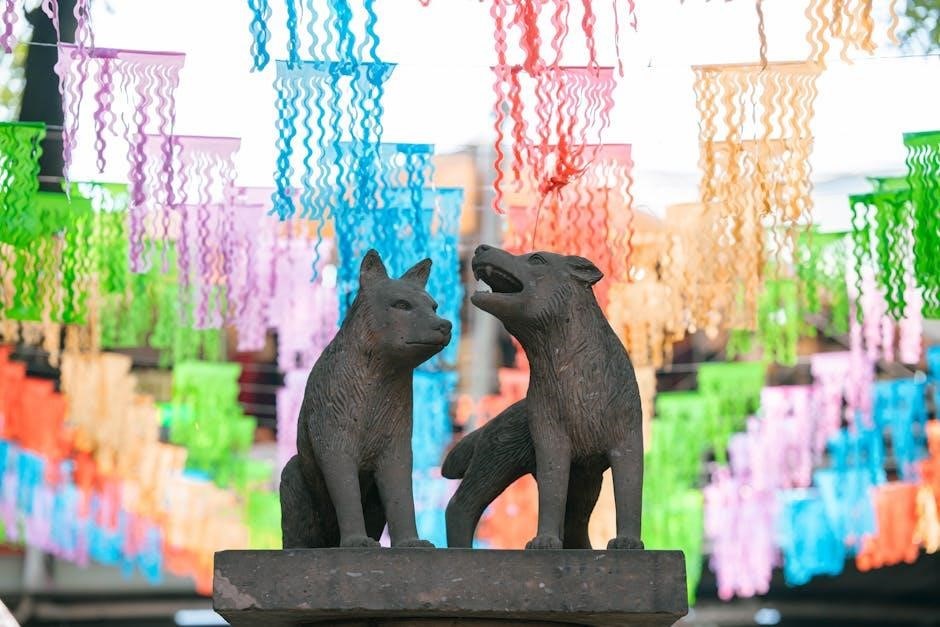
Sarah DeLappe, an American playwright, gained prominence with her debut play The Wolves, which premiered in 2016. Known for her nuanced portrayal of female adolescence, DeLappe’s work often explores themes of identity, competition, and societal pressures. Her writing captures the raw, authentic voices of teenage girls, resonating deeply with audiences. The Wolves earned critical acclaim and established DeLappe as a rising talent in contemporary theater. Her ability to weave emotional depth with sharp dialogue has made her a significant voice in modern playwrighting, focusing on the complexities of young women navigating the challenges of growing up and finding their place in the world;
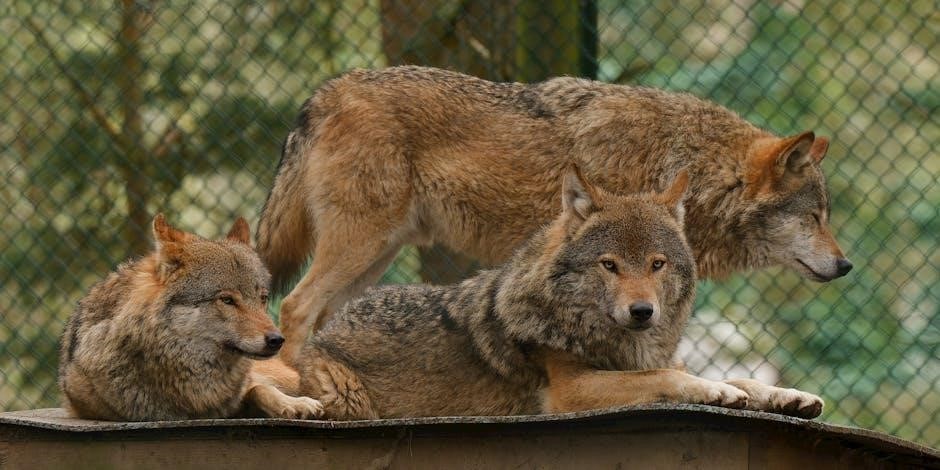
Plot and Structure
The Wolves unfolds on an indoor soccer field, following nine teenage girls as they warm up, engage in sharp banter, and navigate personal and team conflicts, revealing their growth and dynamics.
The Setting: An Indoor Soccer Field
The play is set entirely on an indoor soccer field, where the audience witnesses the lives of nine teenage girls unfolding during their pre-game warm-ups. This confined yet dynamic space serves as both a physical and emotional backdrop, capturing the intensity of their training and the camaraderie that binds them. The indoor setting amplifies the girls’ interactions, creating an intimate yet charged atmosphere where their personalities, conflicts, and vulnerabilities emerge. Through the repetitive drills and synchronized movements, the soccer field becomes a metaphor for their collective journey, blending the rigors of competition with the complexities of adolescence. The setting remains constant, yet its significance evolves as the narrative progresses.
The Characters: Nine Teenage Girls
The Wolves centers around nine teenage girls, each uniquely defined by their personalities, quirks, and struggles. Identified primarily by their jersey numbers, the characters are multidimensional, reflecting the challenges of adolescence. From the team captain to the newcomers, each girl navigates her own identity amidst the pressures of teamwork and competition. Their interactions reveal their distinct voices, whether through witty banter, emotional vulnerability, or competitive aggression. The playwright skillfully avoids stereotypes, instead crafting authentic portrayals that resonate deeply with audiences. These characters are not just athletes but individuals grappling with self-discovery, friendship, and the complexities of growing up. Their collective dynamic creates a rich tapestry of experiences, making each character memorable and relatable.
The Narrative: Warm-Ups, Banter, and Conflict
The Wolves unfolds through the dynamic interactions of the soccer team during warm-ups, where their conversations and physical routines reveal their personalities and relationships. The narrative is driven by their banter, which oscillates between humor, camaraderie, and subtle tensions. As the play progresses, underlying conflicts emerge, exposing personal struggles, insecurities, and rivalries. These moments of friction highlight the complexities of teamwork and adolescent identity. The dialogue is sharp and realistic, capturing the intensity of competition and the vulnerability of growing up. Through these exchanges, DeLappe masterfully weaves together moments of unity and discord, creating a compelling narrative that explores both the strengths and fragilities of the team dynamic.
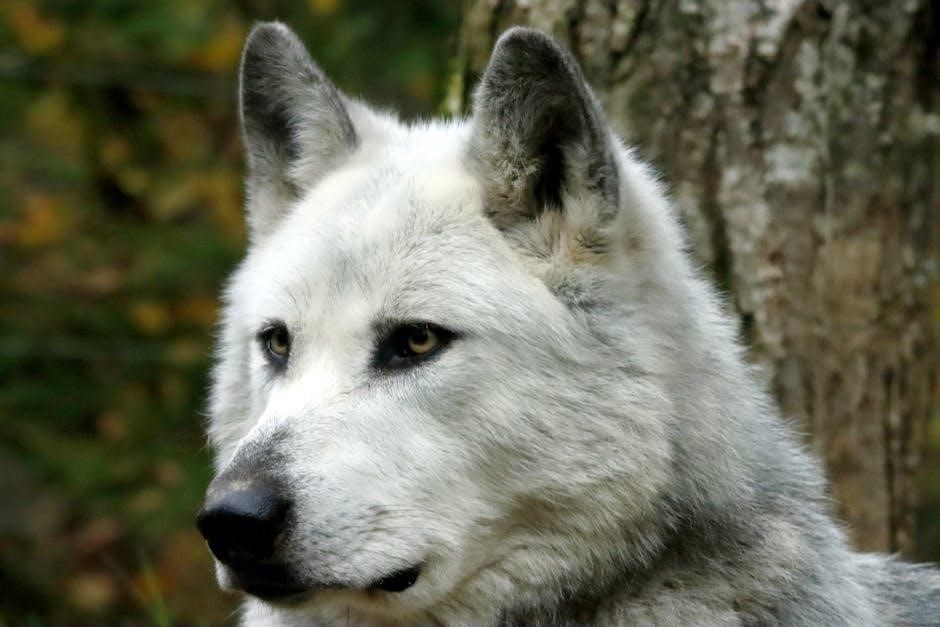
Themes and Symbolism
The Wolves delves into themes of adolescence, identity, and teamwork, using the soccer field as a symbol of unity and conflict, reflecting the characters’ shared struggles and triumphs.
Themes of Adolescence and Identity
The Wolves captures the raw essence of adolescence through the interactions of nine teenage girls on a soccer team. As they navigate warm-ups and banter, their conversations reveal struggles with self-discovery, societal pressures, and the complexities of growing up. The play underscores the challenges of forming identities amidst peer dynamics and personal insecurities. Each character embodies distinct traits, from the brainy elitist to the team captain, illustrating the diverse ways adolescence shapes individuality. DeLappe’s portrayal highlights the vulnerabilities and strengths of teenage girls, offering a relatable and poignant exploration of this critical life phase. The soccer field becomes a metaphorical stage where these girls confront their fears, desires, and futures, making their journey both authentic and compelling.
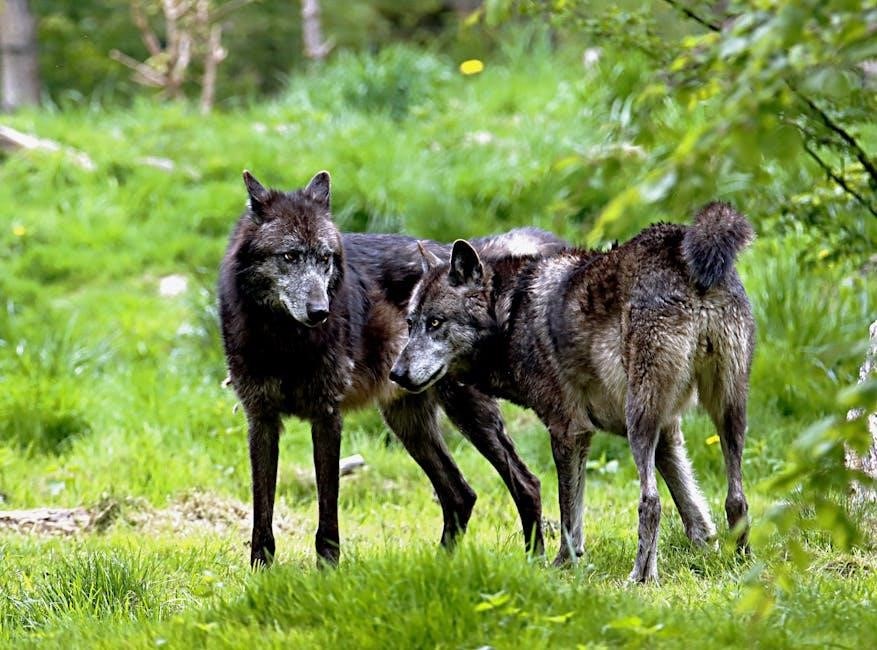
Themes of Teamwork and Competition
The Wolves delves into the intricate dynamics of teamwork and competition within a girls’ indoor soccer team. The play portrays how the team’s synchronized warm-ups and drills reflect their unity and reliance on one another. Through their interactions, the girls exhibit strong communication and mutual support, essential for their collective success on the field. However, competition introduces internal rivalries and pressures, leading to both cooperation and conflict. The narrative explores how these competitive elements influence individual performances and interpersonal relationships. By focusing on their shared experiences and the pressures of competition, the play highlights the challenges and triumphs inherent in team sports, offering a nuanced portrayal of how teamwork and competition shape the characters’ lives both on and off the field. This duality is central to the play’s exploration of group dynamics and personal growth.
Symbols in the Play
The Wolves employs several symbolic elements to enhance its narrative depth. The indoor soccer field serves as a confined, intimate space where the girls’ emotions and conflicts unfold, symbolizing their isolated world. Their jerseys, marked with numbers, represent their roles within the team while hinting at their individual identities beyond sports. The warm-up exercises, with their synchronized movements, symbolize unity and preparation for life’s challenges. The soccer ball itself embodies both competition and camaraderie, highlighting the duality of their experiences. These symbols collectively create a layered exploration of adolescence, identity, and the pressures of group dynamics, offering audiences a deeper understanding of the characters’ lives beyond the game. Through these symbols, DeLappe crafts a story rich in both action and emotional resonance.

Critical Reception
The Wolves garnered significant acclaim, with sold-out runs and enthusiastic reviews. Critics praised its raw portrayal of adolescence, calling it “bright” and “exhilarating,” highlighting DeLappe’s assured storytelling.
Acclaim and Reviews
The Wolves received widespread critical acclaim for its raw and unflinching portrayal of female adolescence. Critics noted the play’s ability to capture the intensity and vulnerability of its characters, with many praising DeLappe’s nuanced dialogue and the cast’s dynamic performances.

Awards and Recognition
The Wolves garnered significant recognition in the theater world. It won the 2017 Relentless Award from the American Playwriting Foundation and was a finalist for the 2017 Susan Smith Blackburn Prize. The play’s success led to multiple productions across the U.S. and internationally, solidifying its reputation as a groundbreaking work. Critics and audiences alike praised its raw portrayal of female adolescence, earning it a “Critic’s Pick” from The New York Times. Sarah DeLappe’s unique voice and insightful storytelling were widely celebrated, making The Wolves a standout in contemporary theater. Its impact continues to resonate, inspiring new adaptations and discussions about youth and identity.
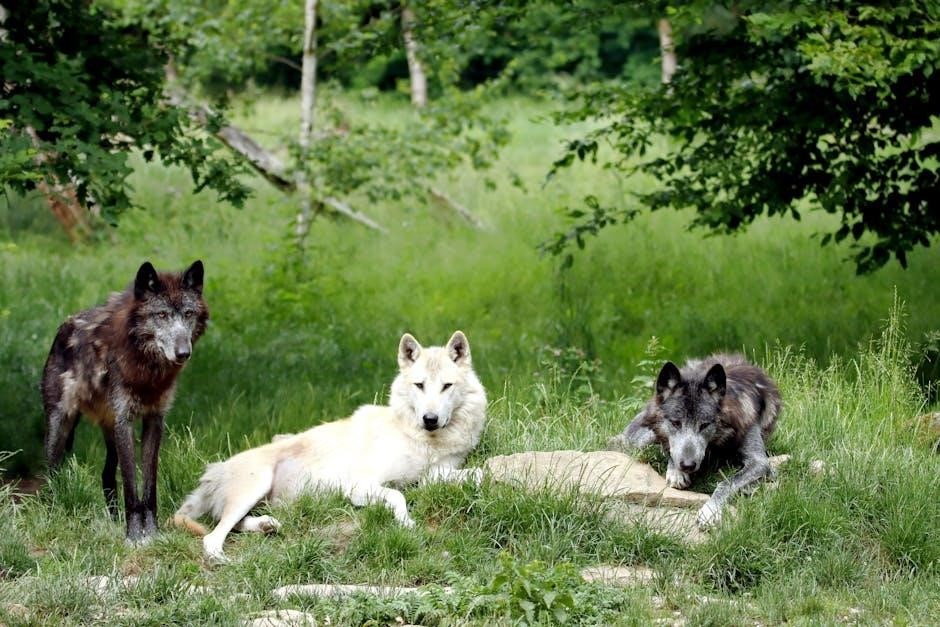
Impact on Contemporary Theater
The Wolves has left a lasting mark on contemporary theater, influencing how stories about young women are told. Its unfiltered dialogue and nuanced portrayal of female adolescence have inspired playwrights to explore similar themes with authenticity. The play’s success has also sparked conversations about the importance of diverse voices in theater. By focusing on the complexities of teenage life, The Wolves has challenged traditional narratives and paved the way for more dynamic representations of youth. Its influence extends beyond the stage, resonating with audiences and encouraging a shift toward more genuine storytelling in modern theater. The play’s impact continues to grow, making it a significant work in the evolution of dramatic literature.

Educational and Performance Resources
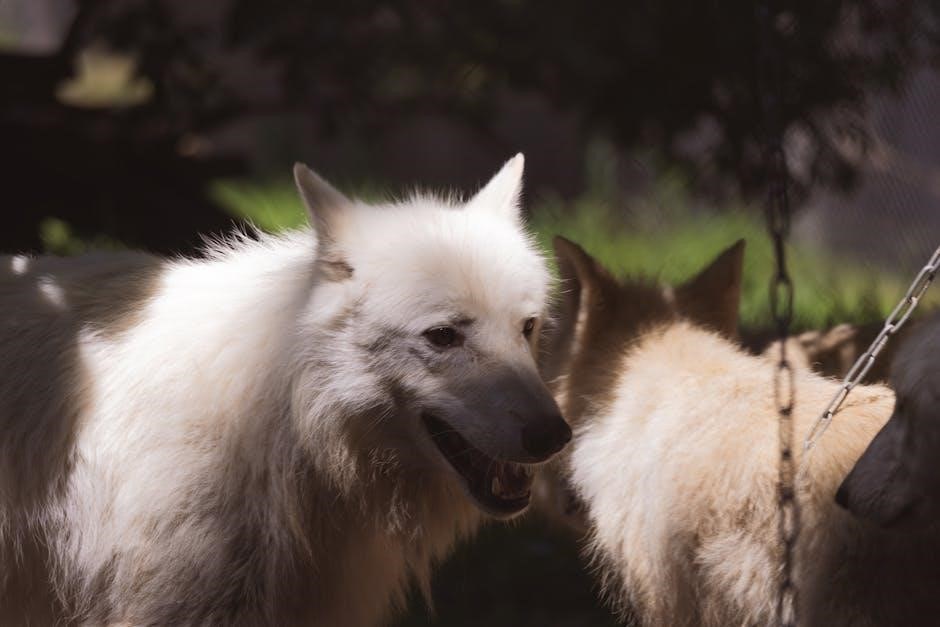
The Wolves offers extensive resources, including a downloadable PDF version, detailed study guides, and licensing options for educational and theatrical performances, fostering accessibility and engagement.
Availability of the PDF Version
The PDF version of The Wolves by Sarah DeLappe is widely available online, offering a convenient format for readers and educators. Platforms like Google Drive, online libraries, and educational websites provide free access to the play, making it easily accessible for study or performance preparation. The PDF includes the full script, character descriptions, and scene breakdowns, allowing for a comprehensive understanding of the play’s structure and dialogue. Its digital format has contributed to its popularity among high schools, colleges, and theater groups. This accessibility has also facilitated its use in academic settings, enabling students and teachers to engage deeply with the themes and characters of The Wolves.
Study Guides and Educational Materials
Study guides and educational materials for The Wolves are widely available, offering in-depth analysis and resources for students and educators. These guides provide summaries, character analyses, and thematic explorations, making the play accessible for academic study. Many materials include discussion questions, teaching tips, and activities to engage students with the play’s themes of adolescence, identity, and teamwork. Some resources are available directly from publishers or educational websites, while others are created by teachers for classroom use. These materials align with curriculum goals, helping students explore the complexities of the play and its relevance to contemporary issues. They also support theatrical productions, offering insights for directors and actors interpreting the text.
Performance Rights and Licensing
Obtaining performance rights for The Wolves is essential for any theater group or school interested in staging the play. Licensing is managed through organizations like Samuel French, ensuring proper authorization for productions. The process typically involves submitting an application with details about the production, including the number of performances and venue size. Once approved, groups receive the necessary materials and rights to perform the play. Licensing fees vary based on the production’s scale and type. Schools and community theaters often find the play appealing due to its relatable themes and manageable cast size. Ensuring compliance with licensing agreements is crucial to support the playwright and the intellectual property rights of the work.
The Wolves by Sarah DeLappe remains a powerful exploration of female adolescence, teamwork, and identity, leaving a lasting impact on contemporary theater and its audiences worldwide.
The Lasting Influence of “The Wolves”
The Wolves by Sarah DeLappe has left an indelible mark on contemporary theater, praised for its raw portrayal of female adolescence and its unflinching examination of societal pressures. The play’s critical acclaim, including sold-out runs and a Pulitzer Prize finalist mention, underscores its resonance with audiences. Its exploration of identity, teamwork, and conflict continues to inspire new productions and adaptations worldwide. The play’s success has also led to widespread educational use, with its PDF version and study guides being invaluable resources for students and educators. As a result, The Wolves remains a pivotal work in modern theater, reflecting the complexities of young women’s lives and challenging stereotypes. Its influence ensures it will be a cornerstone of theatrical studies for years to come.
Why the Play Resonates with Audiences
The Wolves resonates deeply with audiences due to its authentic portrayal of female adolescence, capturing the complexities of identity, friendship, and societal expectations. The play’s raw, unfiltered dialogue mirrors real-life conversations, making it relatable to both young and adult viewers. Its focus on teamwork and personal growth highlights universal themes that transcend the soccer field, appealing to a broad demographic. The exploration of individual struggles within a collective dynamic strikes a chord, offering a fresh perspective on coming-of-age stories. As a result, The Wolves not only entertains but also sparks meaningful reflections, making it a powerful and enduring work in contemporary theater.
